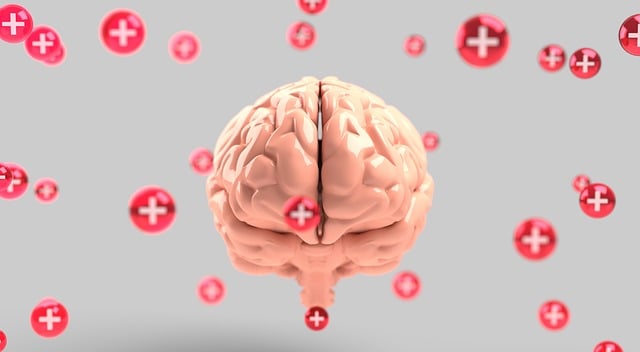Stress management programs are essential for maintaining long-term well-being by teaching individuals to recognize and cope with stressors. These holistic approaches combine mindfulness practices, cognitive-behavioral therapy, relaxation exercises, and healthy lifestyle changes to reduce chronic stress's impact on both mind and body. By integrating regular physical activity and balanced nutrition, these programs enhance mental clarity, emotional resilience, and overall happiness, enabling individuals to better navigate life's challenges and improve their quality of life.
“Unwind, Reset, Thrive: Uncovering the Secrets of Long-Term Health and Happiness”
In today’s fast-paced world, navigating stress has become a vital component of well-being. This article delves into the comprehensive approach of stress management programs designed to transform lives. We explore various techniques, from mindfulness meditation to therapeutic interventions, offering insights on their impact on long-term mental and physical health. Discover how integrating physical activity, healthy lifestyle choices, and resilience-building strategies can lead to sustained happiness and overall well-being. Get ready to embark on a journey towards a happier, healthier you.
- Understanding Stress and Its Impact on Long-Term Well-being
- The Role of Mindfulness and Meditation in Stress Management Programs
- Integrating Physical Activity and Healthy Lifestyle Choices for Lasting Happiness
- Building Resilience and Coping Strategies through Therapeutic Interventions
Understanding Stress and Its Impact on Long-Term Well-being

Stress is an inevitable part of life, but chronic or prolonged stress can significantly impact long-term health and happiness. It’s crucial to understand that our bodies are designed to respond to stressors as short-term challenges, triggering the fight-or-flight response. However, when this response becomes constant due to ongoing stress, it can lead to various physical and mental health issues over time. This includes elevated levels of cortisol, often referred to as the stress hormone, which is linked to anxiety, depression, heart disease, and impaired cognitive function.
Effective stress management programs play a pivotal role in promoting long-term well-being by teaching individuals to recognize and cope with stressors. These programs offer valuable tools and techniques to reduce the negative impact of stress on both mind and body. Through mindfulness practices, cognitive-behavioral therapy, relaxation exercises, and healthy lifestyle changes, participants gain insights into managing their stress response more effectively. By integrating these strategies into daily routines, individuals can enhance resilience, improve mental clarity, boost mood, and ultimately foster a happier, healthier life.
The Role of Mindfulness and Meditation in Stress Management Programs

Mindfulness and meditation have emerged as powerful tools within stress management programs, offering a holistic approach to well-being. These practices encourage individuals to focus on the present moment, cultivating awareness of their thoughts, emotions, and bodily sensations without judgment. By regularly engaging in mindfulness exercises, participants in stress management programs can learn to recognize and effectively manage stress triggers.
Meditation provides a structured framework for this process, teaching techniques such as deep breathing, visualization, and mantra repetition. Such practices have been shown to reduce cortisol levels—a primary hormone associated with stress—and promote relaxation. Incorporating mindfulness and meditation into stress management programs equips individuals with valuable coping mechanisms, enabling them to navigate life’s challenges with enhanced resilience and improved mental clarity.
Integrating Physical Activity and Healthy Lifestyle Choices for Lasting Happiness

Incorporating regular physical activity and adopting healthy lifestyle choices are fundamental components of any comprehensive program aimed at long-term health and happiness. Stress management programs that effectively integrate exercise have been shown to significantly enhance overall well-being. Physical activity acts as a natural stress reliever, boosting mood and reducing symptoms of anxiety and depression. It stimulates the release of endorphins, often referred to as ‘feel-good’ hormones, which contribute to a sense of contentment and relaxation.
Moreover, combining physical exercise with healthy dietary habits creates a powerful synergy for lasting happiness. A balanced diet provides the body with essential nutrients required for optimal functioning, supporting energy levels and mental clarity. By prioritizing both movement and nutrition, individuals can create a solid foundation for resilience against stress, promoting long-lasting happiness and improved quality of life.
Building Resilience and Coping Strategies through Therapeutic Interventions

Building resilience is a cornerstone of long-term health and happiness, and therapeutic interventions play a pivotal role in achieving this. Stress management programs, for instance, are designed to equip individuals with effective coping strategies, enabling them to navigate life’s challenges more adeptly. These programs often incorporate techniques such as mindfulness meditation, cognitive behavioral therapy (CBT), and stress reduction exercises, which have been scientifically proven to lower anxiety levels and enhance emotional well-being.
Through these therapeutic tools, participants learn to identify and challenge negative thought patterns, improve their ability to manage overwhelming emotions, and develop healthier ways of responding to stressful situations. This process fosters mental agility and emotional fortitude, allowing individuals to adapt more flexibly to life’s ups and downs. As a result, they become better equipped to maintain their overall health and happiness over the long term.
In conclusion, effective stress management programs that encompass mindfulness, meditation, physical activity, and healthy lifestyle choices are vital for fostering long-term health and happiness. By integrating these strategies, individuals can build resilience, enhance coping abilities, and create a sustainable foundation for overall well-being. These programs not only mitigate the detrimental effects of chronic stress but also empower folks to navigate life’s challenges with greater ease and resilience.
